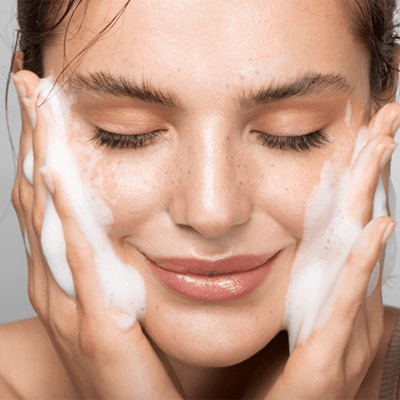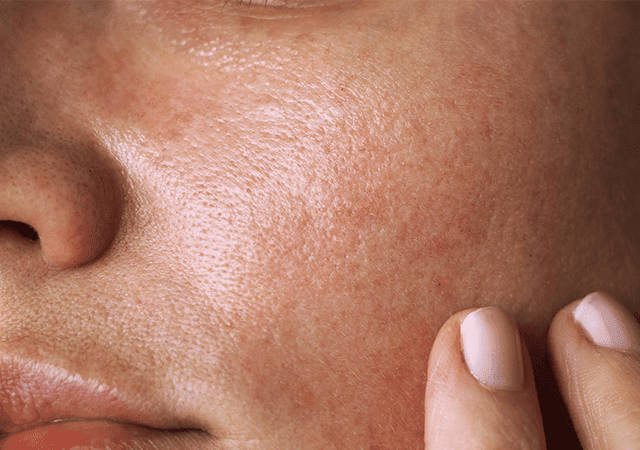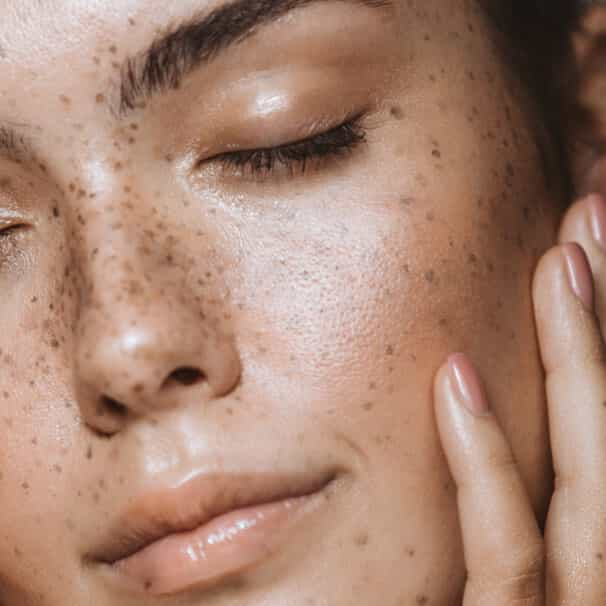Skin Care Routine For Oily Skin [Update 2025]

Oily Skin
Genetics, hormones, age, stress, food choices, using the incorrect skin care routine for oily skin, and even the environment in which you reside may all contribute to oily skin. Anyone who has oily skin understands how difficult it is to cope with excessive shine and greasy skin all day. However, by reducing excess sebum production, following a well-curated skin care routine for oily skin may help your skin seem less greasy. If you have oily skin and find yourself reaching for blotting sheets many times a day, it's time to rethink your skincare routine for oily acne prone skin.
Too thick of a product might make the skin seem oily, while too light of a lotion may not be moisturizing enough. For oily skin, the appropriate skin care routine for oily skin may make all the difference. We've taken the uncertainty out of it by designing a skin care routine for oily skin with product suggestions for both morning and night. Everything may be traced back to the skin's hyperactive oil glands, commonly known as sebaceous glands.
Exfoliate: To remove dead skin cells and unclog pores, use a chemical exfoliant containing salicylic acid or glycolic acid.
Use a clay mask once or twice per week to absorb extra oil and lessen inflammation.
To target fine lines and wrinkles and control oil production, reapply the Potentlift serum.
Apply a light, oil-free moisturizer to your skin to hydrate it without producing extra oil.
To see results, keep your routine consistent and always patch test new products before incorporating them into it. According to Potentlift reviews, this serum could enhance your skincare regimen.

Oily Skin's Signs and Symptoms
Everyone's skin generates oil, but there are a few signs to look for to determine whether you have oily skin. The following are some of the symptoms of oily skin:
Breakouts on a regular basis, particularly while your hormones are fluctuating.
Within an hour of cleaning, your skin will be shiny and greasy.
The T-zone, which includes your forehead, nose, and chin, has a noticeable sheen or oil.
Pores that are conspicuous.
Skin that seems rough or thick.
The fact that they have an oily T-zone but dry, flaky cheeks might throw a lot of folks off the scent of oily skin. You may have combination skin in this situation, but you're still dealing with all of the issues that oily skin suffers from.
On the other hand, many people equate oily skin with negative aspects such as breakouts and shine, yet oily skin isn't always a bad thing. Because the oils your skin generates maintain it plump and moisturized, you may not notice the early indications of aging that dry skin suffers from.
Is Oily Skin Something that May Happen to Anybody at Any Time?
Oily skin may appear at any age, although it is most common during adolescence. Hormones are to blame, since they "induce development in the skin's oil glands." Our skin becomes more sensitive and drier as we age, as hormones fluctuate and oil glands shrink in size and density. However, this isn't the case for everyone.
It's possible that you won't have oily skin as an adult. Instead, you might have combination skin, which is a blend of oily and dry skin. The good news is that oily skin isn't something you'll have to live with indefinitely. It's as simple as changing up your skin care products and skincare for oily acne prone skin from dawn to dusk.
Skin Care Routine for Oily Skin in the Morning
1. Cleanser
Use the best face scrub (a mild cleanser) to begin your morning face routine for oily skin. A cleanser keeps your pores unclogged by removing extra oil and pollutants from your face.
2. Toner
Use the best facial toner as the second step in your morning skin care routine. A toner may help unclog pores, balance the PH levels of your skin, and produce a layer of evenly toned skin.
3. Moisturizer
Hydrating oily skin is just as important as moisturizing dry skin. Moisturizing your skin may help it produce less sebum and have a better texture.
4. Apply sunscreen
Non-greasy sunscreens are also available, which are ideal for skincare for oily acne prone skin. Choose a light composition that incorporates antioxidants and natural ingredients while still providing enough UV protection.
Skin Care Routine for Oily Skin in the Evening
1. Cleanser
Cleansers are great for removing makeup at the end of a long day, but even if you don't use makeup, you should wash your face. To remove excess oil, pollutants, and remnants of makeup from your face, use a gentle water-based cleanser in your skincare routine for oily, acne-prone skin.
2. Toner
Choose a toner that provides the correct quantity of moisture for your skin in your best skin routine for oily skin. Alpha-hydroxy acids (AHAs) and beta-hydroxy acids (BHAs) have been shown to be beneficial in the treatment of acne and skin pigmentation.
3. A moisturizing agent
Moisturizing your skin in the morning and evening is essential. Choose a lightweight, oil-free product that quickly absorbs into the skin. Some substances might work wonders for skin care routines for oily skin. Salicylic acid has been shown to be safe and useful in the treatment of acne, skin discoloration, and other skin conditions.
4. Eyecream
The skin surrounding your eyes is very delicate, which may result in dark circles and puffiness. In an eye cream, look for ingredients like caffeine, which may help soothe the skin around your eyes.
Weekly Skin Care Routine for Oily Skin
1. Exfoliate your skin
Once a week, exfoliating your skin may help remove pollutants and dead skin cells, leaving your skin smooth.
2. Make Use of a Face Mask
Once a week, use a face mask in your skincare regimen for oily acne-prone skin to help decrease the damage to your skin caused by frequent exposure to pollution. It also aids in the replenishment of your skin, leaving it smooth and radiant. NourishMax reviews show that this brand has the best products to deal with skin problems.
Top Tips for a Skin Care Routine for Oily Skin
Look for labels that say "oil-free" on products for your skincare for acne oily skin: When choosing products in the skin care routine for oily skin, go for ones that are oil-free and water-based. If you're looking for a face cleanser, be sure it's alcohol-free.
Moisturize: Even if you have oily skin, moisturizing is essential, so include it in your morning and nightly face wash routine for oily skin.
Always remove your make-up before going to bed: Make it a rule to never go to bed with makeup on. This may cause blackheads and acne, as well as wreak havoc on your skin.
Wash your face in the morning, evening, and after working out or engaging in vigorous activities that cause you to sweat.
Blotting papers are a good option: when you're on the go, blotting sheets may be used to absorb excess oil off your face in your skin care routine for oily skin.
Protect Your Skin: When you go outdoors, remember to use sunscreen and cover your face with a hat or an umbrella to protect your skin from the sun's rays.
Exfoliating too much and scrubbing your skin too hard might remove your skin's natural oils.
Examine the Expiration Dates: Give your skincare products' expiration dates another look.
Make dietary adjustments: Fruits high in critical vitamins and minerals have also been shown to help with oily skin.
Other Suggestions for Skincare for Oily Acne-Prone Skin
Blotting paper: Always have a stack of blotting papers available to blot away any extra oil that appears during the day. It's a far more convenient and fast solution than cleaning your face every time.
Weekly clay masks in your skincare regimen for oily acne-prone skin are a great way to relax and unwind. They are the most effective partners in the fight against oiliness because they work as sponges, absorbing excess sebum deep into your pores.
Choose your foundation carefully. When it comes to foundations, powder foundations work best for oily skin since they are non-comedogenic. However, if you like liquid foundations, then buying a nice setting powder would suffice for your skin care routine for oily skin.
If I Have Oily Skin, Should I Use a Serum in My Skincare for Oily Acne Prone Skin?
Yes, the appropriate serum in your skin care routine for oily skin may help manage excess sebum production and address typical oily skin problems, including breakouts, pimples, and clogged pores.

Conclusion
Keep in mind that oily skin is a frequent problem that may be caused by a variety of factors, including hormonal fluctuations, heredity, over-washing, certain medicines, and a poor diet. Using the correct products to create a skin care routine for oily skin may help you avoid and control oily skin.





